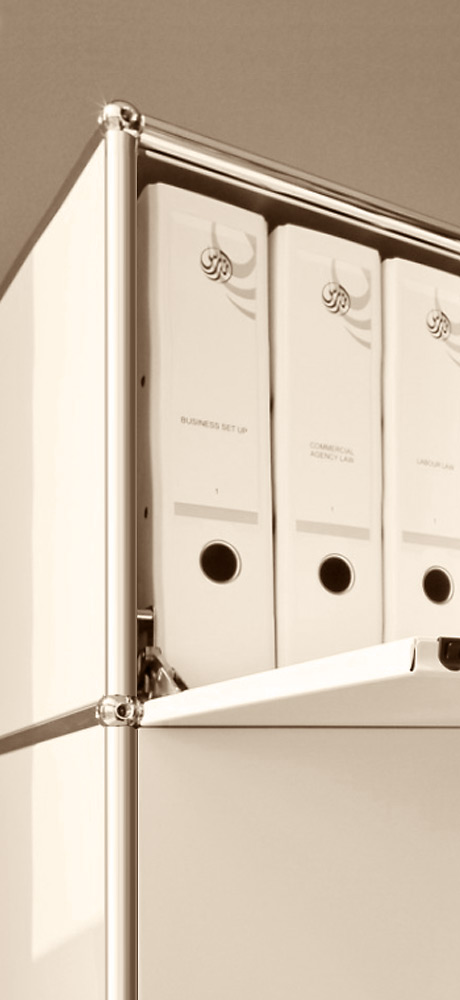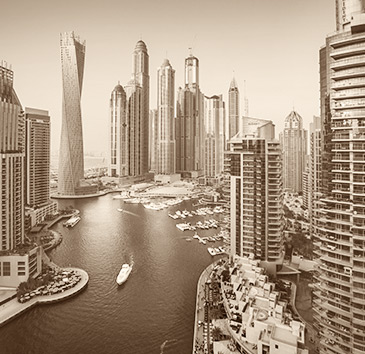Dubai attracts investors from all over the world who wish to invest in the real estate market. When considering the acquisition of a holiday home, local legal requirements must be taken into account upon purchasing, using and managing the property. Below, we have summarised important aspects for you.
1. Ownership Options for Foreign Investors
In principle, individuals of all nationalities are eligible to acquire real estate in the Emirate of Dubai. The same generally applies to legal entities licensed in the mainland of the United Arab Emirates ("UAE") or in certain free zones of the UAE. Foreign companies are currently not entitled to purchase real estate in the Emirate of Dubai.
However, foreign nationals and UAE companies with foreign shareholding are allowed to acquire real estate in certain districts of Dubai only. These so-called freehold areas are, for example, Dubai Marina, The Palm Jumeirah and Downtown Dubai.
2. Selection and Purchase of a Holiday Home
Before you purchase a property in Dubai for your own use or to rent it out as a holiday home, there are some important steps to consider.
First, you should choose the location carefully. Dubai offers a variety of options - from luxury beach resorts to urban apartments with skyline views. Check the exact location of the property, the developer's reputation, the quality of construction and the amenities offered, such as pool, fitness facilities and potential beach access. In case of a project still being under construction, you should ensure that the project and the developer are properly registered with the competent authorities, especially the Dubai Land Department.
Furthermore, budgeting is crucial as you need to consider not only the purchase price, but also additional fees and ongoing maintenance expenses.
It is advisable to carefully review all contractual documents in advance. On the one hand, this ensures that they comply with the applicable laws. On the other hand, the purchase documents also regularly determine whether a property is suitable for short-term rental. In some cases, this option is restricted by the project developer or the company entrusted with the management of the property, subjected to certain regulations or prohibited altogether.
The payment terms should be well-understood. When buying directly from the project developer, foreign investors can usually pay the respective instalments of the purchase price via bank transfer. When buying in the secondary market, payment of the purchase price is typically made by manager's cheque during the date of transfer of ownership in one of the so-called Real Estate Registration Trustee Offices, which are linked to the Dubai Land Department.
3. Residence Visas
For the purchase of a property, foreign investors do not need to have a long-term residence permit, so-called residence visa. However, depending on how long and how frequently you intend to use the holiday home yourself, you may need to apply for such permit.
Property owners are eligible to apply for a residence visa regardless of whether they intend to use the property themselves or rent it out as a holiday home. The type and duration of the residence visa depends on the value of the property and the age of the applicant.
Currently, there are three main visa categories for property owners in the Emirate of Dubai. Property owners who have purchased a property worth at least AED 750,000 are eligible to apply for a 2-year visa. Property owners who are at least 55 years old and have purchased a property for a purchase price of at least AED 1 million are eligible to apply for a so-called retirement visa, which is valid for 5 years. Finally, the golden visa, which is valid for 10 years, is available to property owners who have purchased a property valued at AED 2 million or more.
Applying for a residence visa can also be beneficial for property owners who want to rent out their property exclusively as a holiday home. Upon receipt of the residence visa, among other things, it is easier to open a local bank account. This can be used to receive deposits and rent or to pay electricity, water and telephone bills. Thus, it facilitates the management of the holiday home.
4. Registration of a Holiday Home
Dubai has seen an increased demand for holiday homes in recent years and has therefore introduced appropriate regulations to regulate this market and ensure that accommodations meet local standards. This includes minimum requirements for furnishings, safety and hygiene.
Should you wish to rent out your property as a holiday home, the property must be registered with the competent authority in the Emirate of Dubai, i.e. the Department of Economy & Tourism ("DET"). The registration is done through the DET's online portal.
As part of the registration process, all required documents, such as a copy of the owner's passport or Emirates ID Card as well as a copy of the title deed of the property, must be uploaded in the system. The processing time is usually one business day. The one-time registration fees currently amount to AED 1,520. In addition, a fee for every night the holiday home is rented out has to be paid, so-called Tourism Dirham. Such fee is irrespective of the number of guests, but calculated according to the classification of the property as Deluxe Holiday Home or Standard Holiday Home.
It should be further noted that a private property owner can register a maximum of eight properties through the DET online portal.
If you do not wish to handle the rental of your holiday home yourself, you can engage a specialised company that acts as a holiday homes manager. Such companies take care of the entire process of registering, managing and renting out holiday homes for their clients. This includes, in particular, arranging for the cleaning and maintenance of the property as well as guest services. However, before choosing a respective provider, make sure that the company is reputable and has a valid license to manage holiday homes in Dubai. In addition, it is important to carefully review the terms of the contract and negotiate, if necessary, before you enter into an agreement.
5. Conclusion
Overall, buying a holiday home in Dubai is a complex process that requires careful planning and the review of various contracts. Compliance with the current laws is crucial to achieve your investment goal and to avoid legal problems during the purchase and rental. Paying attention to the aforementioned aspects will help to successfully implement your plans.

